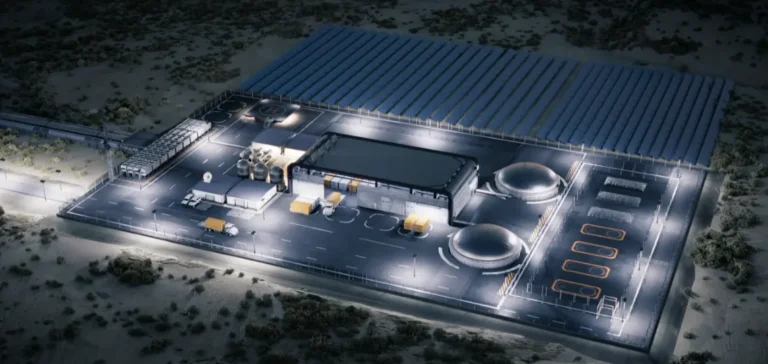NANO Nuclear Energy Inc. has been awarded a Direct to Phase II Small Business Innovation Research (SBIR) contract by AFWERX, the innovation arm of the United States Air Force. The funding, valued at approximately $1.25mn, will support a feasibility study for deploying the KRONOS MMR™ energy system, a nuclear microreactor, at the Joint Base Anacostia-Bolling (JBAB) in Washington D.C.
Objective: securing military energy supply
The project will be carried out in collaboration with the 11th Civil Engineering Squadron. It will examine the base’s current and future energy needs, grid vulnerabilities, environmental considerations, siting options, and regulatory frameworks. The initiative aligns with the Air Force’s strategic priorities to strengthen energy resilience across urban military facilities.
The KRONOS MMR™ is a stationary, high-temperature gas-cooled nuclear microreactor designed to deliver 15 MWe (45 MWth) of carbon-free power. It uses meltdown-resistant TRISO fuel and passive helium cooling, enabling automatic safe shutdown without human intervention or external power.
A modular system designed for autonomy
Designed for autonomous operation, the KRONOS MMR™ can disconnect from the main grid during disruptions. It is independent from fuel convoys, engineered to withstand physical and cyber threats, and can be deployed in multi-reactor configurations to achieve varying power outputs depending on mission requirements.
The AFWERX contract will evaluate how the KRONOS MMR™ could be integrated into a dense urban base, marking a first for such a system in the United States. This initiative could pave the way for broader adoption of microreactors in critical defence installations, particularly in high-density or high-risk environments.
NANO Nuclear is supported in this effort by Stonegardens Advisory LLC, a defence strategy and business development firm. The company played a key role in positioning the KRONOS MMR™ within the Department of the Air Force’s innovation pipeline.






















